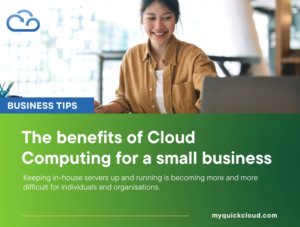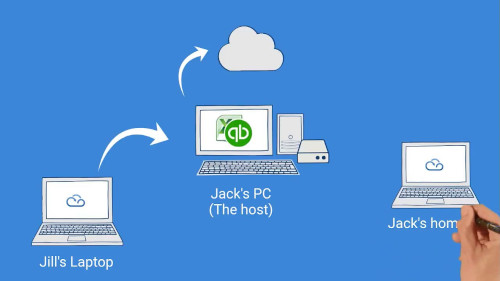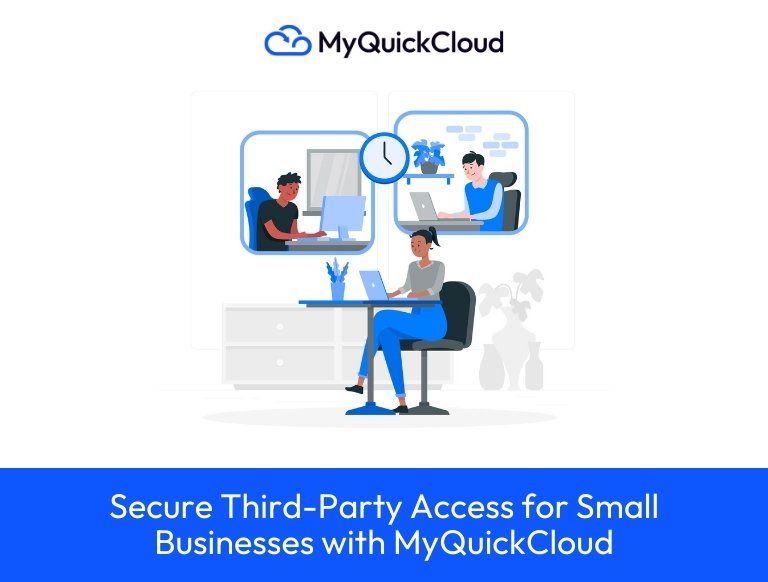In IT infrastructure, the pandemic has accelerated a trend that was already evident. A more agile and streamlined infrastructure to support the fast-changing marketplace is now at the heart of many companies’ digital transformation plans.
Keeping in-house servers up and running is becoming more and more difficult for individuals and organisations.
The cloud operates similarly to web-based email clients, allowing users to access all of the features and files of the system without having to keep the bulk of that system on their own machines.
Cloud-based CRM software such as MyQuickCloud, for instance, allows employees to quickly access and share customer information with other authorised parties anywhere in the world via any device.
Nonetheless, some business owners remain hesitant to invest in cloud-computing solutions, which is impacting the way they and their employees work.
In this article, we look at the benefits of Cloud Computing for your business:
Reducing Costs
The traditional IT method for provisioning services is to use physical resources hosted on your own servers. In order to achieve this, several large and ongoing investments will need to be made, such as:
- Equipment purchases and upgrades
- Space is required for storing your resources
- Server maintenance and management costs (including staffing and IT costs)
In the cloud, easy access to your company’s data will save you time and money.
Many of these costs can be eliminated with a cloud-based solution.
Cloud computing doesn’t require large capital investments: you only pay for the resources you use.
Your cloud subscription includes maintenance and software updates, so you can treat them as fixed expenses rather than variable expenses. The most up-to-date hardware and software can usually be found at a lower cost with public cloud providers because their users share costs.
Security and compliance
The truth is that public cloud service providers likely have more security measures in place than you would manage in-house, even though there are inherent risks associated with storing data off-site. MyQuickCloud has access to cybersecurity experts, uses the latest technology, and has regular daily backups that are easy to provide if required.
According to RapidScale, 94% of companies saw an increase in security after switching to the cloud, and 91% said the cloud made government compliance easier.
More Flexibility
Computer and data-storage issues will take up too much of your time if you don’t have the right IT solutions in place. Your time is always best spent on your core products and services, rather than creating your own IT infrastructure.
Businesses have more flexibility with the cloud versus local servers. Additionally, cloud-based services can provide extra bandwidth instantly if needed.
The sharing of resources and files in real-time is another benefit of cloud computing. You gain agility and flexibility, which was previously impossible. In order to implement cloud computing successfully, a proper infrastructure is still required, however it is easier to manage and upgrade.
Collaborative Working
Cloud computing makes collaboration a simple process. Team members can view and share information easily and securely across a cloud-based platform.
For instance, you may be an accountant that requires to offshore some of your accounting or bookkeeping services. MyQuickCloud enables you to provide secure access to your partner, and with the ability to remove access when required. The MyQuickCloud application sharing allows you to share your desktop apps with colleagues, allowing you to work on them at the same time without disruptions.This also removes the need to send laptops, computers etc to staff.

Sustainability
In today’s business environment, economic, social, and environmental sustainability are key considerations.
Can cloud computing benefit small businesses, local governments, accountants and professional services companies in terms of the environment?
The answer here is yes! Greenhouse Gas Emissions from data centres are reduced by cloud computing. By switching to cloud computing, companies reduce their per-user carbon footprint by 30% to 90%, according to a survey conducted by Accenture.
Most cloud data centres are powered by renewable energy sources, such as wind, solar, and geothermal. MyQuickCloud has partnered with Amazon Web Services (AWS), whose mission is to “run their business in the most environmentally friendly way possible and use 100% renewable energy for their global infrastructure”.
To arrange a demonstration of MyQuickCloud, sign up here. We’ll be delighted to support your transition to the cloud.





